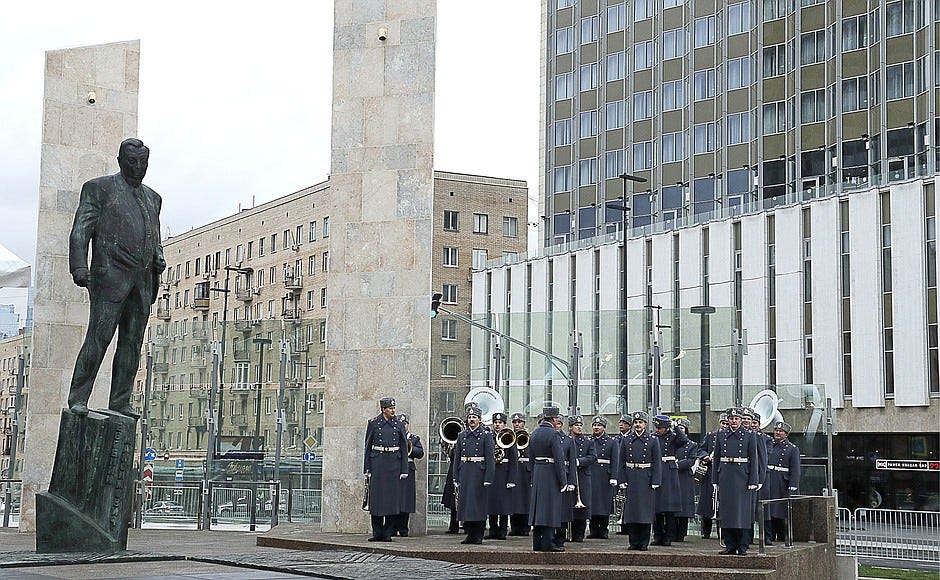Russian Decline in Caucasus
The West's growing influence in former-soviet states presents a challenge to Russia
Written by foreign policy graduate Percy Spender, find more of his content on 𝕏 @PercySpender
The Southern Caucasus is shaping up to be a new front in the power struggle between Eastern and Western powers. The increasing likelihood of Russian influence being ejected from both Georgia and Armenia in the near future represents a sorely needed win for the West after the ongoing disaster that has been Ukraine — a prospect Russia is certainly preparing for.
Ongoing protests have erupted throughout Georgia’s capital city, Tbilisi, over the legislation proposed by ‘Georgian Dream’ (Georgia’s current ruling party) which has been dubbed the ‘foreign agents’ bill. The law would require non-government organisations to register and categorise themselves as foreign agents if they receive more than 20% of their total funding from abroad. Protestors have labelled such a law as pro-Russian and criticise it for its resemblance to Russian laws used to squash dissent against Putin’s regime. This is quite the contradiction, seeing as Russia would be hard-pressed to inject its agenda into Georgian politics were its operatives required to register as Russian agents. This is the second round for the legislation after the Georgia Dream Party abandoned it following widespread protests last year.
Protests are expected to continue until the bill is abandoned again and activists hope to maintain pressure against the Georgian Dream leading into the upcoming elections in October, which could see Dream lose the parliamentary control it has enjoyed since 2012. The above-mentioned accusations made against the Dream Party are not an accurate description and have been unfairly levied by the opposition. Many of the pro-Russian allegations arise from the fact that the party founder, Bidzina Ivanishvilli, made his multi-billion fortune in Russia, coupled with Georgia’s firmly neutral stance regarding the Russia-Ukraine war, the refusal to supply Ukraine with weapons or to sanction Russia under his leadership. All this being said, the most tumultuous effect of this law would be the banning of some Russian opposition officials from entry into Georgia, while balancing this with the maintenance of pragmatic relations with Russia. Despite the balanced nature of this proposal, the Western powers are not happy and so have thrown their weight behind the opposition party, who look likely to impose a tougher stance on Russia; continuing the NATO project of removing Russian influence from the Black Sea.
Armenia, another former Soviet state, is quickly ditching Russian support in favour of Western aid in the face of renewed Azerbaijani aggression. Early this year, Armenian Prime Minister Nikol Pashinyan announced that Armenia had refused to participate in the Collective Security Treaty Organisation, the Russian-led answer to NATO. The pivot away from Russian security was a surprising break in a longstanding relationship between Yerevan and Moscow. Seeing an opportunity, the United States and France in particular are seeking to fill this void; Directly after the statement from Armenia that the country will not be a part of CTSO, the French Armed Forces Minister visited Armenia to discuss strengthening defensive ties. Armenia desires Western support to bolster its military, requiring more support than Russia could accommodate, to even power discrepancies between itself and Azerbaijan in an attempt to stave off invasion.
Armenia is wary of Azerbaijan's aggressive posture, of particular concern is that an invasion might be launched to take the geopolitically significant Zangezur corridor in southern Armenia. Such a move would finally connect greater Azerbaijan with the Nakhichevan Autonomous Republic, an Azerbaijan exclave located in southwest Armenia. If Azerbaijan controls the corridor, then they will share a border with Turkey, unlocking direct rail and road links between the two Turkic nations. This has been deemed an important issue for Turkish President Recep Tayyip Erdogan who vigorously pursues what has been coined the pan-Turkic project. Armenia obviously does not want to be steamrolled in the creation of Turkic NATO and Russia does not want growing Turkish influence swelling in its Central Asian underbelly.
All this considered, Russia is in a tough spot and NATO seeks to exploit this. Russian forces may be chipping away making slow but consistent progress in the far more difficult than expected Ukrainian Special Military Operation, but the West is seeking to make strategic advancements on Russia’s flanks. Russia for a long time has sought to maintain its influence in the region, brokering peace and meditating ceasefires in the Nagorno-Karabakh war between Armenia and Azerbaijan as well as the direct invasion of Georgia back in 2008, enforcing peace amongst Georgia and self-proclaimed breakaway republics South Ossetia and Abkhazia.
This Russian political behaviour follows the Primakov doctrine, which advises that for Russia to carry political weight in a multipolar world then, among other principles, dominance of post-Soviet territory is a necessity. Using the lens of the Primakov doctrine we understand the significance of Georgia and Armenia in this chess match. Russia can see the fall of the Caucasus provide a launching pad for hostile powers to agitate Russia’s Central Asian region. But with so many resources dedicated to Ukraine, it will be enthralling to see if the Kremlin can continue to keep the West out of the Caucasus. The October 2024 Georgian election will act as a litmus test, as will monitoring how Armenia’s relations with the West develop, especially if confronted by aggressive Azerbaijani rhetoric.





